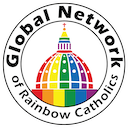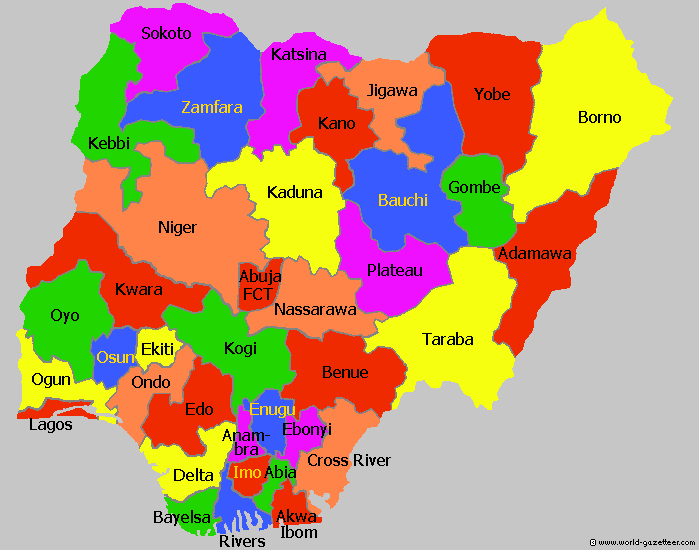My next journey was to Nigeria, and I had to be extremely careful at this stage of my journey for my own safety and security. It was not easy crossing the border of Benin and Nigeria since the Nigerian Presidential election was coming up in few days time, so security was very high. I had wished to visit northern, southern and eastern Nigeria but could only visit Lagos, which is in the South West. However I did meet and speak to people from all regions of the country as Lagos is the most diverse cultural city of Nigeria.
In Nigeria, the church and the government both persecute LGBT people. On the 7th January 2014 the Nigerian President Goodluck Jonathan, signed The Same Sex Marriage (Prohibition) Act into law. This Act imposes lengthy prison sentences of up to 14 years on any person who attempts to enter into a same-sex marriage or civil union; who participates in a gay club, society or organisation; or who makes a public display of affection with a person of the same sex.
Rashidi is a trained science laboratory technician and an unapologetic human rights advocate especially for persons marginalized on grounds of sexual orientation and gender identity. He was brought up as Catholic. The strict observance of religion and faith in his family led him to begin to study the Bible at an early age, but the experiences and realization of his sexuality made him more questioning of the scriptures. As a young man, he was scared he was going to be consumed by fire whenever he stepped up to the altar. He feared that his homosexuality would be revealed to the church and he would become an object of mockery amongst his peers. He remarked, “Many homosexuals within the church in Nigeria still have those same feelings and are scared about people finding the truth of who they are.”
Rashidi expressed his anger over The Same Sex Marriage Act. Many LGBT Catholics in Nigeria were very disappointed to read in the press that The Catholic Bishops Conference of Nigeria made statements in support of the bill saying that the law was a “step in the right direction for the protection of the dignity of the human person”. Rashidi angrily commented, “I cannot understand how the church could support the persecutions of LGBT Nigerians and still call itself Christian.” There had been an increase in violent attacks against Nigerian LGBT people since the bill was signed into law. Painful for him is the lack of pastoral care and support from the Nigerian Catholic Church towards its LGBT members. While the Bishop pays ‘lip-service’ to human rights and equality, the Catholic Church does not seem to put these ideals into practice.
Rashidi followed the Catholic Family Synod through the international media. “Why the Catholic Church can’t be more like Christ to give everyone a place, I do not know,” he muses. He hopes to see the Nigerian Catholic Church becoming more open and welcoming to everyone. While the priests and bishops in Nigeria are publicly opposing homosexuality, he asks, “Does this mean that there are no homosexual priests or bishops in the Catholic Church of Nigeria, or are they just too afraid to accept themselves and speak out the truth which is first and foremost their calling?” He would love to see brothers and sisters from Europe and other parts of the world visiting Nigeria, sharing their stories and supporting the LGBT of Nigeria in their journey of faith. “What is needed most in Nigeria is material that teaches liberation theology,” he concludes.
I also met Grace, a Lesbian from Ojota. She is a Christian who discovered that she is a lesbian at a very young age. She is currently unemployed but does lots of voluntary work to support the LGBT community in Lagos. She is still very much in the closet but friends and family members often comment on how she dresses like a boy and behaves like a man. Her mother constantly reminds her that a woman’s place is under her husband and says she is praying for Grace to find a good husband. Since the passing of the anti-gay law in January 2014 Grace has become more careful. She recounts a story about an undercover policewoman who joined an online dating group to trap unsuspecting gay women. The policewoman met a female doctor who she subsequently reported to the authorities. The doctor lost her job and was forced to relocate outside of Nigeria. “Many people are using the anti-gay law to blackmail people for money,” Grace explains. In her eyes, Nigeria is a mob country where people are violently persecuted for being homosexual. She said, “I believe [LBGTIs] are one family and I hope that the worldwide Catholic Church and all Christians will come to realise this truth too.”
For many LBGTI persons, the only source of information is the press, which, on most occasions, condemns homosexuality. This can lead to a feeling of self-loathing, an inferiority complex and often a feeling of inadequacy in LGBTs. The condemnation of homosexuality by state and churches as well as the fear of being outed force LGBTs to hide their real sexual identity for a long time. Cynthia was one such person. The acceptance of herself only started when she found an online-group for same gender loving women. Through this group of lesbians, she became aware that love is natural and the greatest commandment of Jesus Christ. She feels that most LGBT Nigerians don’t know the full component of the anti-gay law. “The damaging effects of the anti-gay law are ‘crazy’: gay bashing, suicide, blackmail, rape and more is on the increase against Nigerian LGBT people since that law came into effect,” she explains. Cynthia wishes there was one bishop in Nigeria who was bold enough to stand up and challenge the church and government on their views and attitudes to homosexuality.
Cynthia explains, “I am born and raised Nigerian, if there is anything Nigeria needs it is answers to why a nation so blessed with natural minerals resources, is lacking and dying in poverty. What Nigeria needs is good roads, steady electricity supply, good healthcare and good social services. The problem for the ordinary Nigerian is how to have a daily meal.” In her eyes, the only people who are asking for anti-gay laws are politicians and religious leaders who are using LGBT Nigerians as a scapegoat for the problems in the country.
She asked to help drive education within the Nigerian LGBT Christian communities. This education should cut across spirituality, self and career development, and include legal and human rights. She wants LGBT Catholics from all over the world to keep close ties with the Nigeria LGBT Christians communities.
Also see:
“Voices from LGBT Catholics in Western Africa” – Davis Mac-Iyalla



Trackbacks/Pingbacks